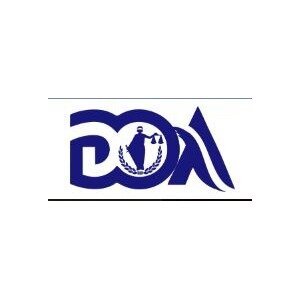Best Child Abuse Lawyers in Ikoyi
Share your needs with us, get contacted by law firms.
Free. Takes 2 min.
Free Guide to Hiring a Family Lawyer
List of the best lawyers in Ikoyi, Nigeria
About Child Abuse Law in Ikoyi, Nigeria
Child abuse refers to any act of harm or mistreatment inflicted upon a child that results in physical, emotional, or psychological injury. Child abuse is a serious offense in Ikoyi, Nigeria, and is strictly prohibited by law. The law aims to protect children from any form of abuse and ensure their well-being.
Why You May Need a Lawyer
Legal assistance is crucial in cases of child abuse to protect the rights of the child and hold the abuser accountable. You may need a lawyer if you are:
- A victim of child abuse or a concerned family member seeking justice
- Accused of child abuse and require legal representation for your defense
- Seeking custody or protection of a child who has suffered abuse
Local Laws Overview
Child abuse laws in Ikoyi, Nigeria are primarily governed by the Child Rights Act of 2003 and the Criminal Code Act. Some key aspects of local laws concerning child abuse include:
- Definition of child abuse and its various forms
- Prohibition of child abuse and penalties for offenders
- Procedures for reporting and investigating cases of child abuse
- Establishment of special courts to handle child abuse cases
- Provisions for the protection and rehabilitation of child abuse victims
Frequently Asked Questions
Q: What actions qualify as child abuse?
A: Child abuse includes physical abuse, sexual abuse, emotional abuse, neglect, and exploitation. It can involve physical harm, threats, verbal or emotional assault, sexual assault, deprivation of basic needs, or any other harmful behaviors towards a child.
Q: How can I report suspected child abuse?
A: If you suspect child abuse, you should immediately contact the appropriate authorities, such as the nearest police station, social welfare office, or a child protection organization. It is important to provide any relevant information and evidence you may have.
Q: What happens after reporting child abuse?
A: After reporting child abuse, the authorities will conduct an investigation to determine the validity of the allegations. The child may be interviewed, and if necessary, placed in a safe environment. The case will then proceed to a specialized court for legal actions.
Q: What are the penalties for child abuse in Ikoyi?
A: The penalties for child abuse vary depending on the severity of the offense. Offenders may face imprisonment, fines, or both. The courts consider the best interests of the child when determining appropriate punishments.
Q: Are there any support services available for child abuse victims?
A: Yes, there are several organizations and support services available for child abuse victims in Ikoyi. These include shelters, counseling centers, and helplines specifically designed to provide assistance, support, and rehabilitation to child abuse survivors.
Additional Resources
For further information and support, you may consider reaching out to the following resources:
- National Agency for the Prohibition of Trafficking in Persons (NAPTIP)
- Nigerian Police Force Gender Unit
- Child Protection Network (CPN)
Next Steps
If you require legal assistance regarding child abuse in Ikoyi, Nigeria, consider taking the following steps:
- Document any evidence or information related to the case.
- Consult a reputable lawyer with specialization in child abuse cases.
- Discuss your situation and seek advice on the best course of action.
- Follow the lawyer's guidance to pursue legal proceedings, if necessary.
- Ensure the well-being and safety of the child involved throughout the process.
Lawzana helps you find the best lawyers and law firms in Ikoyi through a curated and pre-screened list of qualified legal professionals. Our platform offers rankings and detailed profiles of attorneys and law firms, allowing you to compare based on practice areas, including Child Abuse, experience, and client feedback.
Each profile includes a description of the firm's areas of practice, client reviews, team members and partners, year of establishment, spoken languages, office locations, contact information, social media presence, and any published articles or resources. Most firms on our platform speak English and are experienced in both local and international legal matters.
Get a quote from top-rated law firms in Ikoyi, Nigeria — quickly, securely, and without unnecessary hassle.
Disclaimer:
The information provided on this page is for general informational purposes only and does not constitute legal advice. While we strive to ensure the accuracy and relevance of the content, legal information may change over time, and interpretations of the law can vary. You should always consult with a qualified legal professional for advice specific to your situation.
We disclaim all liability for actions taken or not taken based on the content of this page. If you believe any information is incorrect or outdated, please contact us, and we will review and update it where appropriate.









